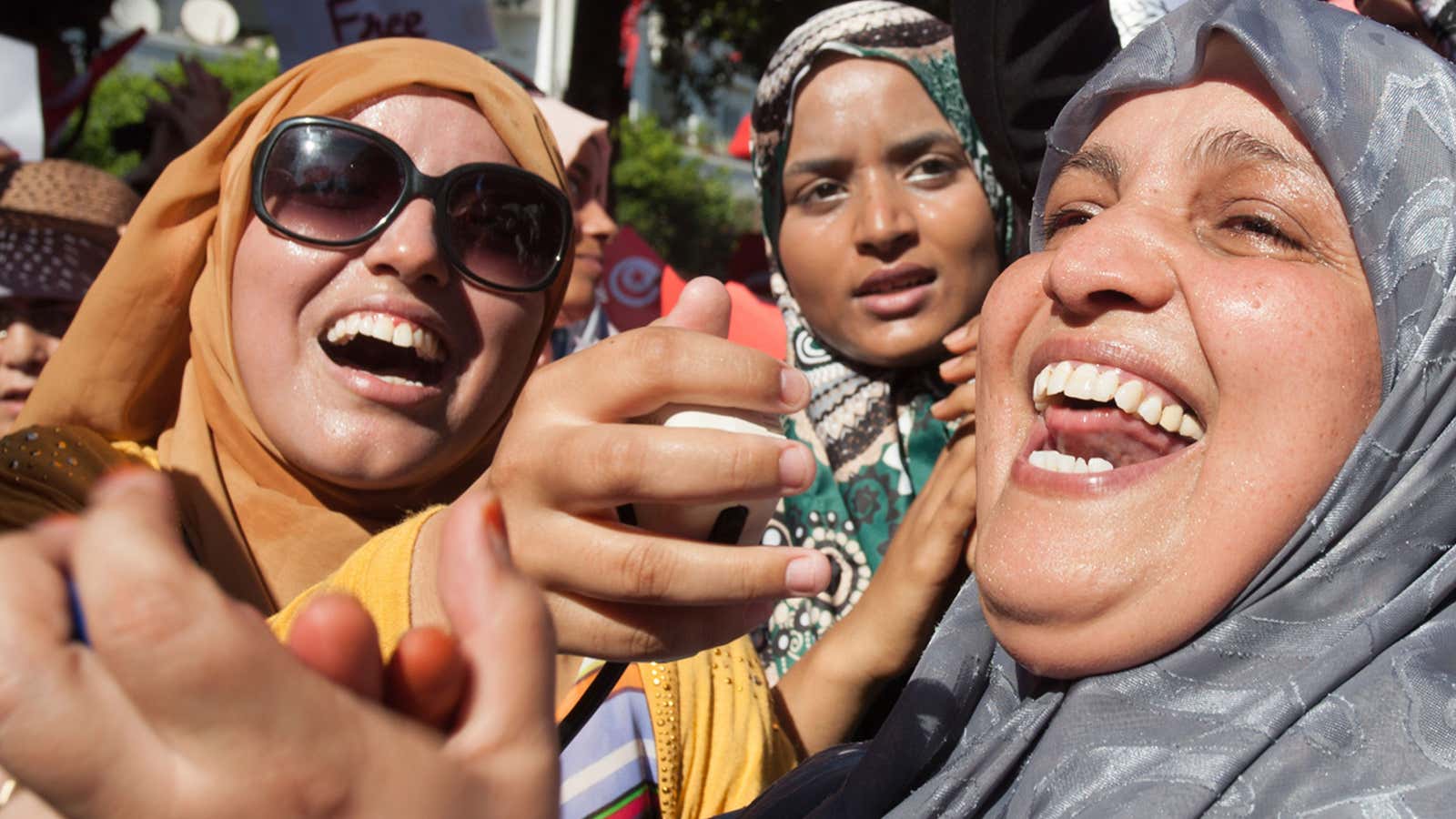Tunisia has lifted a 44-year ban preventing Muslim women from marrying non-Muslims.
Tunisia’s president Beji Caid Essebsi has led a campaign for gender equality since taking office in December 2014. In pushing for the ban to be lifted, Beji Caid Essebsi argued that it contravened Tunisia’s 2014 constitution which was created following the Arab Spring protests at the turn of the decade.
“The state is obliged to achieve full equality between women and men and to ensure equal opportunities for all responsibilities,” Beji Caid Essebsi said on Tunisia’s National Women’s Day in August when he announced gender equality proposals, including scrapping the ban. After the ban was lifted, a presidential spokeswoman congratulated women in the country for the “enshrinement of the right to the freedom to choose one’s spouse.”
The ban was initially put in place in 1973 and forced non-Muslim men who wanted to marry a Tunisian woman to convert to Islam and show proof (usually a certificate of conversion). But, on the other hand, Tunisian men were free to marry non-Muslim women who didn’t have to convert.
The scrapping of the ban is the latest gender equality measure put in place under president Beji Caid Essebsi. Back in July, Tunisia passed tougher laws on domestic and sexual violence as well as sexual harassment in public spaces. The new laws also closed a controversial loophole which granted rapists a reprieve if they married their victims.
The new laws also furthers Tunisia’s reputation as a progressive model for women’s rights in North Africa and the Middle East. Women make up a sizable percentage of the workforce in public and private sectors, and account for 75 out of 217 members of parliament.
But while president Beji Caid Essebsi has managed to deliver on marriage equality and domestic violence laws, he will likely face stiffer opposition while pushing for similar proposals on Tunisia’s historical inheritance laws. Since independence, Tunisian men, by law, receive double of a female sibling’s share of an inheritance. Already, the proposal to scrap the inheritance system has been criticized by Tunisian clerics and members of parliament.
